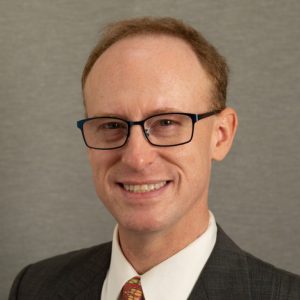“That’s exactly the opposite of what I just said.” — So much for my efforts to speak in the least confrontational terms possible!
My assigned speaking topic at an evangelical multi-seminary conference was “Scripture and Worship.” Since saying almost anything about worship is like pouring emotional gasoline upon a religious fire, I determined that merely gaining a hearing would require inviting my audience to stand with me on the “common ground” of trust in the full authority and sufficiency of all of Scripture. Theological framework in place, the rest of my talk could then focus upon the biblical theology of worship.
Despite my intention to set an inviting and collegial tone through my planned introductory appeal to biblical authority, as the time neared for my presentation I grew more and more concerned. Fellow speakers, all of them my professor colleagues at other seminaries, each took a stance of trust in biblical authority. Yet their speeches then proceeded to limit the scope of biblical authority, for they appealed to various other “authorities” Christians should consult alongside the Bible. During a panel session at the end of the day, an audience member posed an inevitable question: How can Christians, who all supposedly adhere to biblical authority, resolve their obvious and significant disagreements in interpretation? The moderator, himself not a presenter that day, offered that Christians should look to creeds in order to know how to interpret the Bible correctly.
I was dismayed. I judged that I had to challenge the moderator’s answer for the sake of clarity, otherwise the audience would assume that I did not really mean what I said about the sufficiency of Scripture. So I drew a deep breath, reached for the microphone, and waited for the moderator to finish speaking before voicing my disagreement.
Was I out of line? Who was I to question such venerable summaries of historical and systematic theology as the creeds, let alone incite controversy near the close of the conference proceedings? That day a theological chasm yawned open before me, with limited biblical authority on one side, and on the other, biblical authority applied and carried forward to its logical conclusion: sufficiency.
Through further reflection I have become convinced that commitment to the sufficiency of Scripture is an indispensable undergirding characteristic of faith that hopes to endure through this life. As the history of the church in just the last few decades clearly demonstrates, when authoritative Scripture exits the church or in fact was never present at all, total collapse looms on the horizon. The sinful human nature is ever poised to rush in and attempt to prop up the feeble church, and in the process to set itself up as its own idolatrous standard of righteousness.
Commitment to the sufficiency of Scripture is an indispensable undergirding characteristic of faith that hopes to endure through this life.
In an atmosphere of ever-increasing rejection of biblical authority and sufficiency, churches must repent and rebuild. As for rebuilding, the Conservative Resurgence of the Southern Baptist Convention aptly demonstrated that the next generation of leaders must receive biblically faithful theological education. Seminaries must train missionaries, chaplains, pastors, and other laborers in the gospel harvest field who can confidently point to Scripture and say “Thus says the Lord” rather than “Thus say I.”
The implications of rebuilding around a solid commitment to biblical authority and sufficiency are significant for seminaries. Centering upon the ministry of the word should characterize all seminary study programs, not just those housed in departments of biblical studies or theology. Therefore schools of missions, music, education, and counseling must graduate servant leaders whose interaction with the inspired and living Word transforms their practice of ministry within their specialist fields of expertise.
In an atmosphere of ever-increasing rejection of biblical authority and sufficiency, churches must repent and rebuild.
As for training present and future pastors, seminaries must graduate expositors: those upon whom the church can consistently rely to preach the precious Word of God. Therefore competent training in Hebrew, Aramaic, and Greek exegesis must constitute the core of Master of Divinity programs. Exegesis gives birth to Old and New Testament theology, therefore courses in these subjects and in biblical theology prepare the way for study of historical and systematic theology. Then at last preaching should crown the curriculum, maintaining emphasis on both mono-cultural and cross-cultural communication in obedience to the Great Commission. All other courses that the seminary may choose to offer must support these phases of training proclaimers of the Word.
What I have asserted above may strike some readers as merely a reasonable plan, likely resembling the programs of many seminaries, to reach a common-sensical goal. Not so! Let’s think more deeply for a moment. How many seminaries require training in all three biblical languages, especially in direct support of exposition? In light of the authoritative and sufficient Word, there is no valid reason to section off parts of the canon as more or less deserving of rigorous study than others.
Furthermore, while church history and systematic theology courses are commonplace in seminary curricula, their natural prerequisites Old Testament theology, New Testament theology, and biblical theology are not. Therefore the various denominations’ mutually-contradictory sectarian doctrines appear fully formed in systematic theology courses without first being born in exegesis and then forming naturally in biblical theology.
Regarding preaching, proclaiming the Word is a sacred and unique act that always takes place within cultural settings, every one of which the authoritative and sufficient Word addresses and critiques. Training in missional, cross-cultural preaching is absolutely essential to counter the profoundly unbiblical notion that one’s culture is an appropriate standard to impose upon others, and further, that one’s ethnicity confers special knowledge or standing in the Kingdom of God. If vast swaths of the church refuse to turn from the present idolatries of culture and ethnicity, then at least through faithful theological education, the next generation can return to embracing the entirety of the word of God as their sole, sufficient authority.
Indeed, trust in the full authority and sufficiency of all of Scripture is nothing less than the sine qua non of theological education.





















